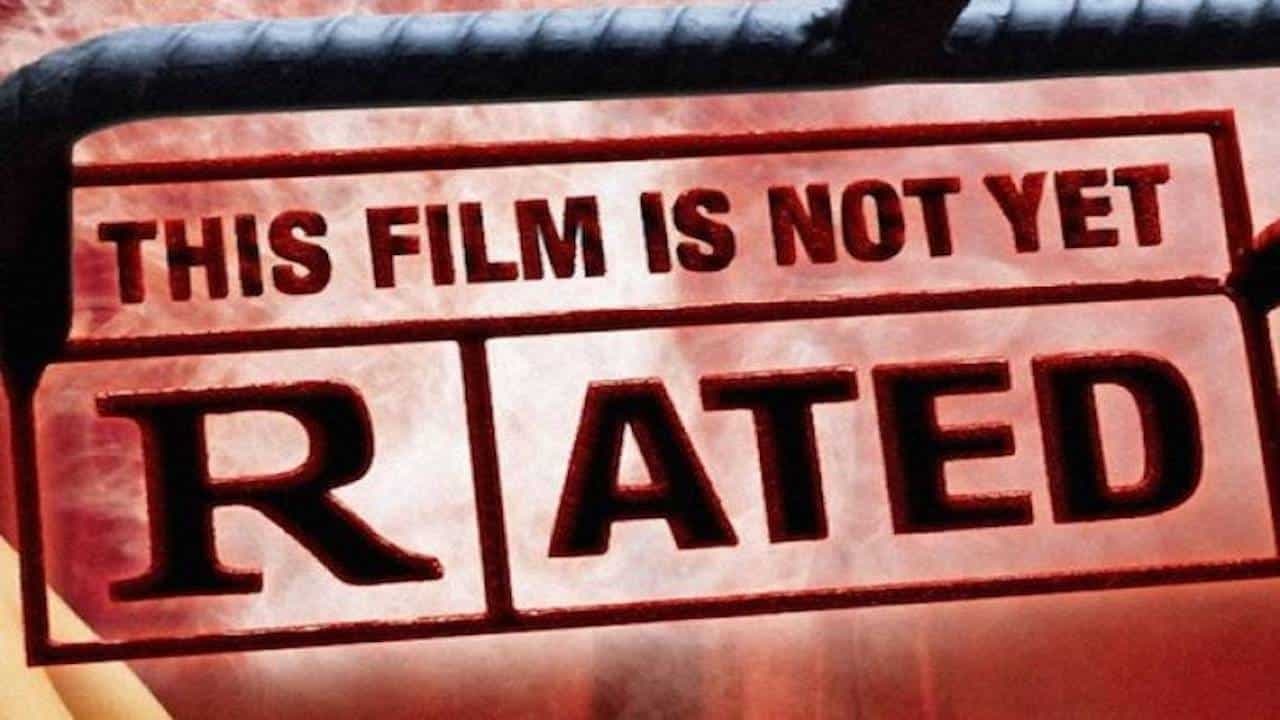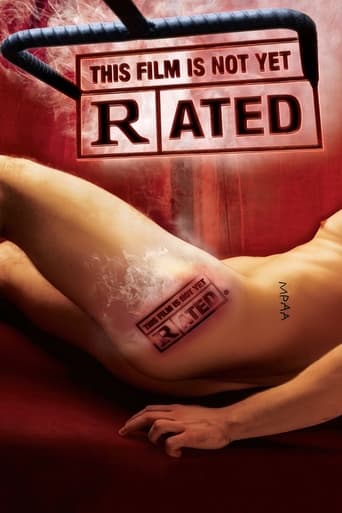

A lot of fun.
... View MoreGreat movie! If you want to be entertained and have a few good laughs, see this movie. The music is also very good,
... View MoreThis movie was so-so. It had it's moments, but wasn't the greatest.
... View MoreThere is, somehow, an interesting story here, as well as some good acting. There are also some good scenes
... View MoreThis piece can serve as a great starting point to understand how on earth some movies full of violence get passed the criterion: the attempts at desexualizing the sex. Movie-goers, those living abroad in particular, can now better understand the system. Still, after watching it one doesn't get shocked, either. I guess this documentary deserves a go because it dares to talk about the elephant in the room.
... View MoreI saw this amusing little documentary after listening to a podcast that explained something about the shady dealings of the Motion Picture Association of America (MPAA), and how almost the entire income of the American movie industry depends on their cooperation. I already learned that the MPAA is a very mighty organization, despite the fact that it is a completely voluntary system that movie studios and cinema franchises have universally adopted, and was only designed for classifying movies into categories as a guide to parents.The most entertaining parts of the documentary are the personal experiences of directors who tell about how their movies (initially) received the heaviest rating, the ubiquitously feared NC-17. In practice, this means that no major cinema will show it, no studio will advertise it, and hardly anyone will pay to see it. I am still puzzled by how a protracted sex scene, frontal nudity, homosexual love as well as a female orgasm in film will instantly restrict the movie to audiences of 17 and higher, whereas a violent death or a man being pleasured can be seen by any minor accompanied by an adult. However, if one thing becomes clear, it is that the MPAA is never in a hurry to explain their reasoning and motives.It is gradually revealed that the MPAA was founded by the six biggest movie studios, and as such, they go much easier on their movies than on independently produced films. As the movie went on, I felt myself swinging between amusement and indignation as the double standards of the MPAA are revealed, as well as their untouchable status, since all their dealings occur in strict anonymity. The official stance of the organization itself is to just staunchly defend this system without any logical reasoning or accountability, much the same way in which they rate movies.I am less convinced by the makers' attempts to track down and identify these anonymous MPAA members. All it amounts to is that we learn that most of them don't fit the job description given by the MPAA; by that time, we are already convinced that the MPAA is a non-transparent, corrupted organization with limited capacity for self-regulation. It would have been much more informative if the makers had interviewed these people, or at least documented (failed) attempts at that. I also missed the Michael Moore-style 'search for the root of the problem', where we could get some insight into where this inconsistent morale about sex and violence comes from.In the conclusion, which is a nice example of 'life imitating art', director Kirby Dick submits this movie to the MPAA, and immediately gets an NC-17 for 'sexual content', despite the fact that those scenes are very brief and merely illustrate his point. He is allowed to fight the decision for a board of appeal, but cannot use any scenes of other movies to defend himself, so he looses the appeal. Apparently the MPAA cannot handle a bit of criticism.Filmmaker John Waters aptly describes the conundrum by saying that the MPAA prides itself on not being a censorship organization. But since it has no official 'rulebook' on what movie content is acceptable for a given rating, there really is no other way for directors than to look at examples of others for guidance. Which is not allowed by the members, who always remain anonymous and only answer to the MPAA itself. Weird.
... View MoreTerrific documentary on film censorship, This Film is Not Yet Rated takes a look at the MPAA the organization who give films its ratings. Director Kirby Dick interviews some prominent filmmakers who have had their films certified with unwanted ratings due to the amount of explicit content in their films. The film shares the points of view of the filmmakers and gives us insight into how unfair the rating system really is. I thoroughly enjoyed this film, and it does a great job at telling the story from the point of view of the people that make the films. For me, I think it's preposterous for someone to tell me what I can, and cannot watch. As you get older, you realize that film is an art form, and how wonderful films can be. By censoring them and telling the filmmakers they have to cut their work, the MPAA waters down, and in many ways destroy the intention and goal for the filmmaker to entertain its audience. Films should be uncompromising and many movies out there are tasteless, extreme and offensive, but the best judge of what to watch is you. This Film is Not Yet Rated is an eye opening film and it should be seen by every film lover. This is a near perfect documentary that finally tells the side of the filmmakers and how the MPAA butchers their art. Brilliant, funny and at times unfair in the sense that one organization has practically given themselves the right to judge what is best for us to watch, This Film is Not Yet Rated is a well crafted must see documentary.
... View MoreThis is a must watch documentary for all the movie buffs who are curious about the procedure behind the rating of the films they see, what do these ratings mean and who decides the rating. This is an expose about the MPAA, the motion picture association of America. It has many startling revelations like America is the only movie making country where the names of the movie raters are kept secret. There are the interviews of many directors whose movies were slapped with ratings for ridiculous reasons. There is a parallel track wherein the documentary maker hires a private investigator to find out about the raters. Should be seen to understand the power which the major movie studios hold and the difficulties faced by the independent movie makers. Is a terrible indictment of Jack Valenti, the head of the MPAA for 38 years. 3.5 out of 5 for this informative piece of cinema.
... View More